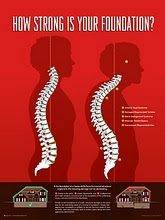Is Cracking Your Neck & Back Bad? – Is It Safe?
※ Download: Is it safe to crack your back
Our team at JOI is here to help you get through you neck and back pain. However, this exercise will require some more range of motion. Then, turn over onto your side and bring your knees in towards your chest.

Then, extend backwards and hold before gently bending from side to side. Communicate with the person throughout the process. In some cases, cracking your neck too hard or too often can puncture one of these blood vessels.

Cracking Your Own Back and Neck is Risky Business. - If you place undue stress on your joints, they will break down prematurely. Then, turn over onto your side and bring your knees in towards your chest.

About Back Cracking: If you work in construction or are a manual laborer and bend and lift heavy items frequently throughout the day, then it is usual for your back to become stiff and cause pain. The stiffness may be so much that you start looking for a quick fix to relieve the tension, so that you can go about with your work without much fuss. This is when you move your back in a certain way and you hear a crack in the back. This not only gives relief from the intense stiffness, but also gives a sense of pleasure and relaxation and allows you to go about your work. The first time when this happens, it may have happened accidentally but the relaxation that it brings with it wants you to do it more frequently. This is when you start cracking your back to relieve discomfort and stiffness habitually. The question is what causes your back to crack or pop and whether it is safe for your back or not. The answer to both these questions has been delineated below in detail. What Causes Your Back To Crack or Pop? Now we go into the details of what actually produces the cracking sound when moving the back in a certain way. For this, we need to understand first about a fluid which is present in the body called the synovial fluid. This fluid is present between the joints in the body and acts as a lubricant or shock absorber. This synovial fluid is present in the synovial membrane, which encompasses the end of our bones. The synovial fluid prevents the bone from rubbing against each other because increased friction between bones may lead to degeneration of the bones, a condition called as arthritis. Coming to the cracking sound, when we move a tight or stiff back in a certain way, the space between the bones get expanded, which results in a gap being created between the bones where synovial fluid gushes in to fill the gap. The movement of the synovial fluid in this gap is what that produces cracking sound from the back. There have been certain other causes given for back to crack or pop when they are moved a certain way. This bubble when it collapses or bursts causes the cracking sound. These causes have been hypothetically suggested as possible causes of Back Cracking, but the cause which is believed the most in medical science is the one in which the synovial fluid gushes in to fill the gap that is created when the joint is moved or stretched producing the Cracking Sound in the Back. Is Back Cracking Safe? Back cracking does not cause any injury to the back itself when it is done occasionally and in moderation. However, when this is done habitually and more often then it may lead to some permanent damage to the joints in the back and spine. This condition is called as hypermobility of the joints. Hypermobility of the joints of the back occur when the muscles surrounding the back and spine are over stretched. This is what happens when you crack the back on a routine basis. This causes the ligaments, muscles, and tissues to lose their elasticity. This in turn decreases the functionality of the back and spine muscles causing hypermobility of the joints of the back. This may be a condition which may require aggressive treatments with a physiotherapist or a chiropractor to bring the muscles, tissues, and ligaments back into shape so that they can function normally. To summarize, Back Cracking is caused due to the synovial fluid rushing in to fill the gap that is created when you stretch the back and the space between bones get expanded. As long as this is done occasionally it does not cause any injury to the back or spine. The problem arises when Back Cracking is done habitually and routinely, which is when a condition called hypermobility is caused which may result in symptoms that require immediate attention by a physiotherapist or a chiropractor to stabilize and normalize the function of the back, which may become dysfunctional due to frequent Back Cracking.
All contents copyright © BabyCenter, L. Now we go into the details of what actually produces the cracking sound when moving the back in a certain way. Think of it this way: Whether you are cracking your back, your neck, your fingers or anything else there is vital fluid that is involved with your joints, ligaments and bones. See a doctor if you have persistent back pain. How nice is that. Bring your right leg gently up and, keeping it bent, rest it over the left leg. In my office would never allow a patient of mine to say pop or crack about what I do because that is not respectful of a skill so valuable to millions of people each day; this is a highly specialized ability that requires eight years to initially learn and a lifetime to make perfect, as well as being disrespectful to those who provide that service.



